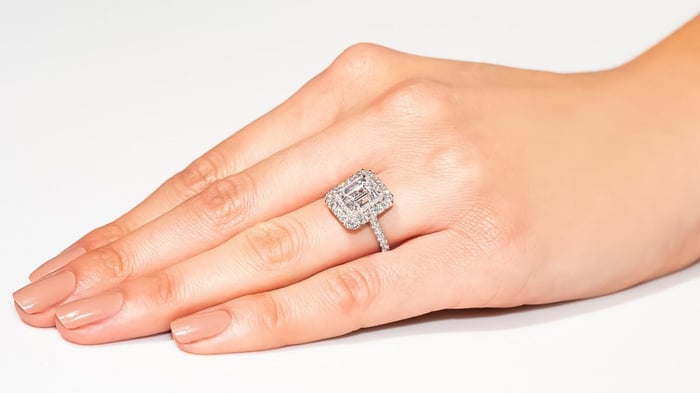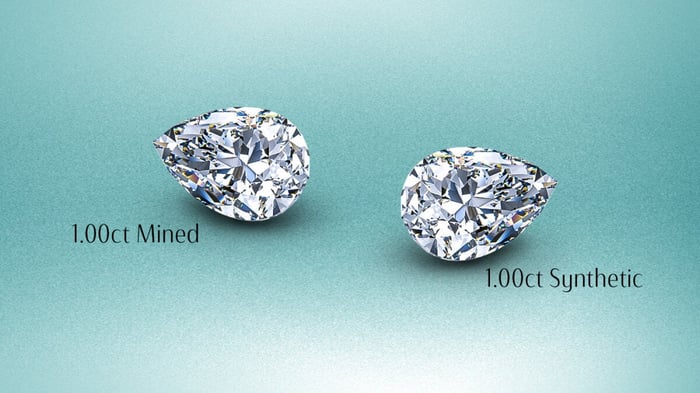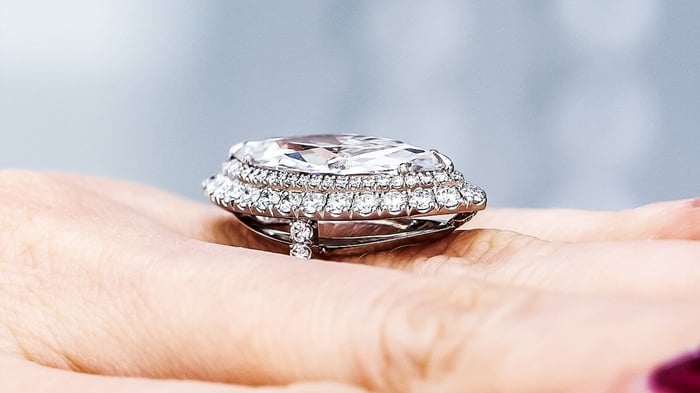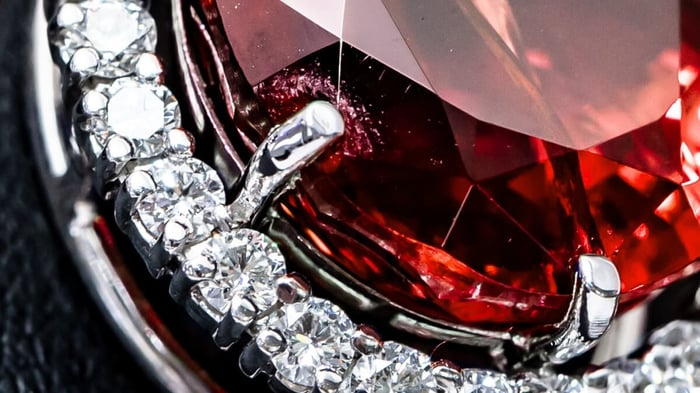Do Diamonds Hold Their Value?
The 'real' value of diamonds has been a vexed question for buyers of diamond jewellery for decades. Some experts will tell you that diamonds are basically worthless while others will go to the other extreme and claim that scarcity makes diamonds a good investment.
The real picture is a little complicated, and the answer to the question 'do diamonds hold their value' is a resounding 'it depends on what you mean’.
A Diamond Is Similar To A Car
We all know how it works with cars, almost no car ever increases in value and, as the saying goes, as soon as you drive off the forecourt, your new vehicle is worth half what you paid for it. Similarly, when you buy a diamond engagement ring, if you were to try to sell it the next day, you’d get nothing like what you paid for the ring. In truth that's to be expected, after all, the diamond in your jewellery includes the cost of making the ring, the price of the gold or platinum that made the ring itself, the costs of running the business and, of course, profit for the jeweller. Not many of us buy a diamond with the intent to sell it soon after purchase. Usually, the stone is part of a gift and is meant to be a permanent possession of the owner.
Real Diamonds Do Have Real Value
Here’s where the naysayers who claim that diamonds have no real value get it wrong (and a little bit right). Over the years from 1960 to 2016, a period of 56 years, the cost of a high-quality diamond of 1 carat weight has gone from $2,700 to $30,925 an increase of 10,000% and is thus well ahead of inflation. The price change is driven by a real scarcity for genuine diamonds as demand exceeds supply. Individuals wishing to sell the diamonds in their jewellery will still find low offers, again driven by the profit margins of the businesses in the supply chain. Over time, the owner of a diamond will have an asset that not only keeps its original value but increases very handsomely over time - making diamonds a good investment.

Where the naysayers get things right is in the area of synthetic or lab-grown diamonds. These have no scarcity value and thus, no intrinsic value. Buy a synthetic diamond because it looks pretty and is relatively cheap to buy, but at the same time, understand that its worth, in the future, is unlikely to be much above zero.
Most Diamonds Are Not Good Investments
Those who claim that diamonds can be a good investment are almost always wrong, even though we can see that the prices of diamonds are increasing over time. A good investment needs to have a transparent market with clear pricing information and with good liquidity, that is, it is easy to turn the asset into cash. These things are not valid for diamonds, there is no transparent market pricing for diamonds and, absent pawnbrokers and second-hand jewellers, it is not easy to turn most diamonds into cash.
0.60ct Blue Sapphire & 0.20ct G/SI Diamond Necklace in 18k White Gold

€1.051,95
Ethically sourced and hand-cut, the gemstones in this striking sapphire and diamond pendant are stunning and arranged perfectly by our UK artisans. The secure claw settings ensure we can confidently extend our lifetime guarantee to you, ensuring you receive years… read more
What Is A Diamond Worth?
For most people, a diamond is not just about its inherent value, apart from the amount of money it costs to buy a good diamond for an exquisite piece of jewellery, most of us are more interested in the emotional value of the diamond.

It might not be objectively justifiable, but the emotional appeal of a diamond is where its value truly lies. When your girlfriend receives the gift of a diamond engagement ring, she knows that you have demonstrated her worth to you in a way that almost nothing else can do. You have sacrificed your own wealth and standard of living to give e beautiful object that symbolises your feelings and commitment to her. For as long as your relationship lasts, that diamond, in that engagement ring will hold its own emotional value. Money will always be far from the consideration of the value of the ring apart from as a note on an insurance policy and that is probably how most diamonds should be seen. The money once spent is gone, but the ring that the money paid for, that can last, if not forever, then generations as it is passed down the family, possibly serving as the engagement ring for a new member to the family.
How Can You Get The Best Return On Your Diamond Investment?
We already know that, over time, diamonds not only hold their value but increase at a rate well in excess of inflation. The problem is that when buying diamonds for jewellery, you are usually buying at retail and so it will take a while for the diamond to appreciate in value enough to cover the purchase price. Similarly, when selling the stone, you will be selling a single stone at a retail level. The best way to reduce the time before your diamond's value increases above what you paid for it is to buy at as good a price as possible. These days that usually means buying from a respected online diamond jewellery retailer. By buying online, you avoid all the costs of high street jewellers. Typically, online it is possible to buy at a discount of at least 25% compared to high street jewellery pricing. When you buy diamonds and diamond jewellery at competitive prices, the time before your diamonds have a positive value is very much decreased.
And The Answer To The Questions is?
For as long as we value diamonds for their beauty and increasing scarcity, then diamonds will continue to hold their value over time. Take a reasonably long term view, and you will undoubtedly be able to get your money back, with profit, should you need to sell – just don't expect that you can treat a diamond as a short term purchase because, as the old advertising campaign told us, a diamond is forever.

All this talk about the money value of diamonds is not why you bought that diamond though was it? You made one of the most significant purchases of your life to make an investment in your future and your happiness; there should be no way that you will ever want to find out for yourself how much you can sell the diamond(s) in the jewellery for.




